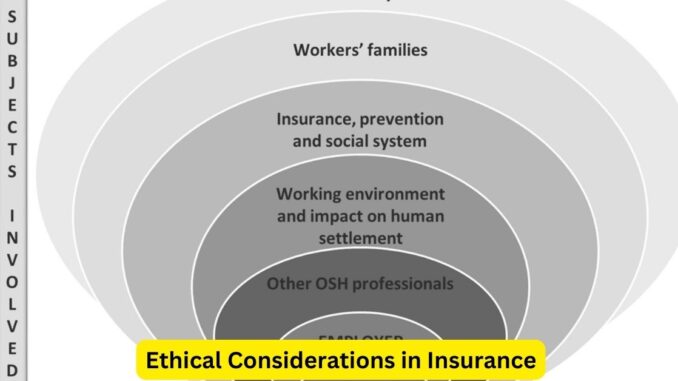
The insurance industry operates at the intersection of business profitability and societal welfare, necessitating a delicate balance between financial viability and ethical responsibility. Upholding ethical standards is crucial as insurers navigate the complexities of risk management, customer relationships, and corporate sustainability.
At the heart of insurance ethics lies the fiduciary duty to policyholders. Insurers are entrusted with safeguarding their clients’ interests, providing financial protection against unforeseen risks. This obligation requires transparency in policy terms, fair claim assessments, and prompt, equitable settlements. However, ethical challenges often arise when maximizing profits intersects with meeting these obligations.
One of the ethical dilemmas faced by insurers is the tension between profitability and underwriting practices. Striking a balance between competitive premiums and sustainable risk assessment is crucial. While offering low premiums attracts customers, it’s essential to ensure that the premiums remain adequate to cover potential claims without compromising the insurer’s financial stability.
Claims handling is another ethical touchpoint in the insurance industry. Timely and fair claim settlements reflect an insurer’s commitment to customer welfare. Ethical concerns arise when insurers attempt to deny or delay legitimate claims to protect their bottom line. Balancing cost management with empathetic customer service is pivotal to maintain trust and integrity.
Ethical considerations also extend to marketing and sales practices. Insurers must ensure their marketing materials are transparent and accurately represent policy terms. Misleading advertisements or aggressive sales tactics that prioritize sales targets over customer needs can erode trust and lead to ethical breaches.
Moreover, the use of customer data in underwriting and pricing brings ethical implications. While data analytics can enhance risk assessment, ensuring the ethical collection, storage, and usage of personal data is paramount. Respecting customer privacy and safeguarding sensitive information aligns with ethical responsibilities in the digital age.
To navigate these ethical complexities, insurers need robust internal governance and compliance frameworks. Clear ethical guidelines, regular training, and oversight mechanisms are crucial in fostering a culture that prioritizes ethical conduct and customer-centric practices.
Collaboration with regulatory bodies and industry peers is also vital. Regulatory standards often serve as ethical guardrails, setting benchmarks for fair practices and customer protection. Engaging in industry dialogues and adopting best practices can further reinforce ethical conduct within the insurance sector.
Ultimately, achieving a harmonious balance between profitability and customer welfare is the cornerstone of ethical insurance practices. While profitability ensures business sustainability, prioritizing customer interests and upholding ethical standards fosters long-term relationships, credibility, and the continued relevance of the insurance industry in safeguarding individuals and communities against risks. Striving for this equilibrium remains a perpetual journey for insurers committed to ethical conduct and societal well-being.

Leave a Reply